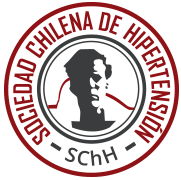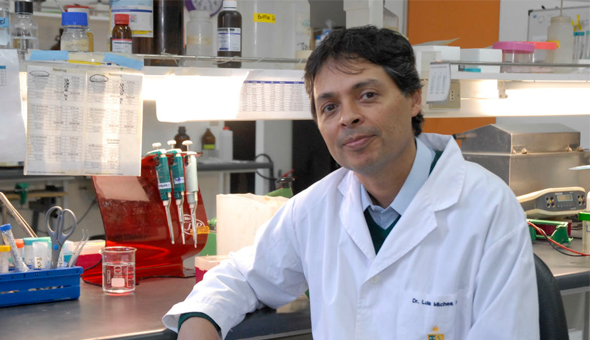With Fondecyt Regular financing 2017, the team led by Dr. Luis Michea, academic of the Physiology Program of the Institute of Biomedical Sciences and the Integrative Physiology Laboratory of the Millennium Institute of Immunology and Immunotherapy, will delve into a surprising discovery that, Add, has gone unnoticed for more than six decades and that exonerates sodium from its harmful role in this pathology.
For the discomfort of hypertensives, The first medical recommendation they receive is to reduce salt in food; table salt is, in scientific terminology, sodium chloride. And although they can stop using the salt shaker in the kitchen and dining room, There are many industrialized products that do have it in their recipes., so if you want to follow this advice rigorously, They should review the labeling of each of them, which luckily is made easier thanks to the current black warning discs. But, What if sodium wasn't the culprit of your blood pressure increases??
The lines of research that Dr. Michea has developed delve into the causal mechanisms of cardiovascular and kidney damage., specifically studying high blood pressure and kidney disease. For those experiments, uses an animal model in which they intervene by raising angiotensin II – a peptide hormone derived from angiotensinogen., which causes vasoconstriction and which, when it is increased, causes an increase in blood pressure; I mean, a hypertensive mouse. But they realized that excess angiotensin II had no effect if the animal consumed a diet rich in sodium. (Already) but low in sodium chloride (NaCl). That is to say, the pressure did not rise.
surprised, the team of researchers – also composed of doctors Andrés Stutzin, of the Pathophysiology Program and Rodrigo Alzamora, of Physiology- reviewed the international scientific literature related to the topic, so they realized that this was a topic that had already been discovered decades ago but that for unknown reasons never had the expected resonance.. “This same observation was made in the 1950s., also in animal model, and with identical results. One of the last publications was in the '80s, when studies were carried out in patients with essential arterial hypertension – for which the cause is not known- who were put on a diet high in sodium chloride, with the result that their pressure rose; after, They changed their diet to one very low in sodium chloride, but rich in sodium and in that scheme the individuals' blood pressure did not rise. But that observation, which was published in good magazines, It stayed there and was never known again.", Dr. Michea clarifies.
The academic explains that chloride is one of the mechanisms that kidney cells use to adjust blood volume. “And since the phenomenon in humans is already described in those previous papers, The important thing now is to understand the mechanism that explains it., because unlike those essential hypertensive patients, we are experimenting with a prohypertensive hormone, whose action is inhibited by lowering dietary chloride. Depending on what we determine in this phase, which is how sodium chloride affects the functioning of the renin angiotensin aldosterone system (RAS) –responsible for regulating blood pressure, body extracellular volume and sodium and potassium balance, We will be able to see if the same thing happens in humans, and thus have an explanation of this phenomenon”.
Possible changes in therapy
“This is super interesting”, Add, “because it would mean that for salt in the diet to be a pro-hypertensive factor, sodium must be accompanied by chloride.”. Y, besides, because all public health measures for the treatment of hypertension aim to lower salt, but The current food labeling measures not the salt content but the sodium content, because it has always been assumed that it is sodium that is harmful. What if we determine that it is not??”
– If this hypothesis is corroborated in humans, it could mean an enormous change for the treatment of hypertensive patients...
– Clear! Perhaps they would not even need drug therapy and just modifying their diet would be enough., eliminating sodium chloride but using a chloride-free alternative, What could sodium glutamate be like?. This is relevant, because many other salts used in the food industry are not sodium chloride but other, as sodium phosphate, which is used to preserve, and maybe that sodium is not harmful because it does not have chloride. For example, marinades are made based on sodium phosphate. Us, outside of that we are interested in understanding if it is the chloride, sodium or the combination of both is harmful, We also want to know if the other sodium salts have that harmful effect or not., and why does that happen, where is whatever the chloride does cause pressure increase.


